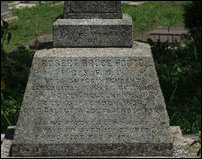A team of archaeologists located the graves of two illustrious scholars, Rev. Dr. Peter Percival (1803-1882) and his son-in-law Robert Bruce Foote (1834-1912), at Yercaud, a hill station near Salem in Tamil Nadu, reported The Hindu, Wednesday. Peter Percival was a former principal of Jaffna Central College, with whom Arumuga Navalar was associated with in his early days in translating the Bible into Tamil. The discovery was made when Prehistoric archaeologists Shanti Pappu, Kumar Akhilesh and V R Pappu set out on a mission to find the grave of Robert Bruce Foote (1834-1912), who is regarded as the pioneer of studies in Geology and Prehistory in India. Dr Shanti is working on a monograph on R B Foote, who first spotted evidence for Palaeolithic culture dating back to 500,000 years, in Tamil Nadu.
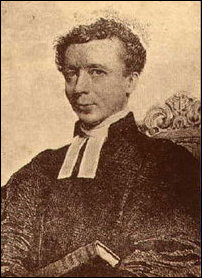
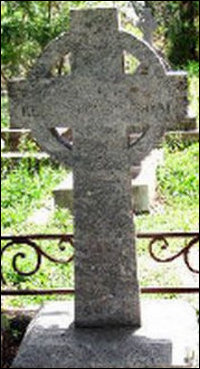
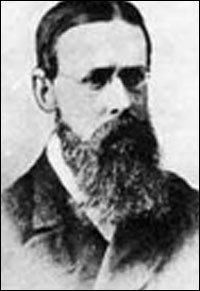 The Jaffna Central College was started in 1817 as Wesleyan English School and acquired its present name in 1834. Rev Dr. Peter Percival came in1826 and served as its head, until his retirement in 1851.
The Jaffna Central College was started in 1817 as Wesleyan English School and acquired its present name in 1834. Rev Dr. Peter Percival came in1826 and served as its head, until his retirement in 1851.
While at Jaffna, Peter Percival, a scholar in Tamil and Telugu, was chairing a committee of six that was engaged in the first Tamil translation of Bible. Arumuga Navalar (1822-1877), who later became the champion of Saivism and Tamil, was in the committee as a Tamil Pundit. He was also teaching at the Jaffna Central College at that time.
Peter Percival later migrated to Madras and served as professor at Presidency College and as Registrar of the Madras University. He made a mark as a scholar, author, lexicographer and journalist in Tamil and Telugu.
Obsessed with his discipline and working for the Geological Survey of India, R B Foote used to travel on horseback in the remote parts of peninsular India, in search of stratigraphic and palaeontological evidence.
In the process, he discovered the first Palaeolithic evidence for human culture in the subcontinent at Pallaavaram near Madras and at Aththirampaakkam, a remote village near Thiruththa’ni. The Palaeolithic tools of half a million years old he discovered in the 1860s became termed in world prehistory as Madras Hand-Axe Industry.
The marvellous prehistoric site at Aththirampaakkam, 60 km from Chennai, was re-excavated by Banerjee of the Archaeological Survey of India in the 1980s and by Shanti Pappu in the 1990s.
Foote, who became an international authority on prehistory and Geology of his times, died in Culcutta and was cremated there according to documents. Hence his tomb was not searched for. But it seems the ashes were brought for burial to Yercaud, where he and Peter Percival had settled in their later years.
Both the graves were found in the cemetery of the Holy Trinity Church at Yercaud (Eatkaadu).
Mr A Theva Rajan, now in New Zealand, who wrote an article on Peter Percival in the Hartley College Centenary Miscellany 1953 and in ‘The Tamil’ edited by Crosette Thambiah, 1955, sent a feed back, saying Peter Percival founded the Veampadi Girls School in Jaffna and also the Hartley College and the Methodist Girls High School in Point Pedro (Paruththith-thu’rai).
Theva Rajan also writes that Peter Percival, influenced by Rev. Duff, whom he met in Calcutta before coming to Ceylon, deviated from evangelism and concentrated on education, adding that it was this perspective that contributed to the quality of education in Jaffna.
Meanwhile another feedback attributed significance to the epitaph found on the tomb of R B Foote: “ I have fought a good fight, I have finished my course, I have kept the faith”. The phrasing of the last sentence was perhaps needed as Geologists and Palaeontologists of mid 19th century, challenging biblical version of the origins of life, were seen as people against the faith, the feedback said.
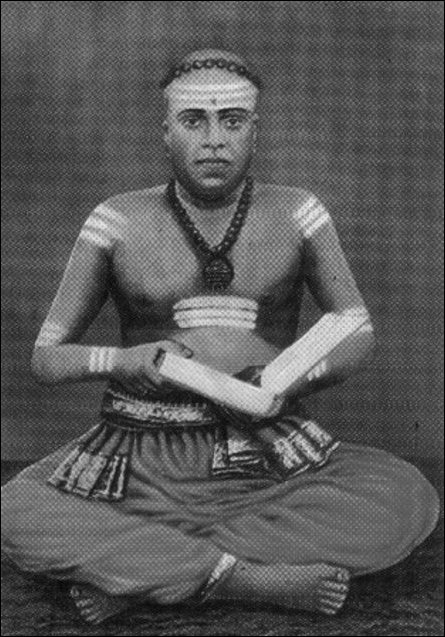
External Links:

Rev. Dr. Peter Percival (1803 - 1882) Founder Principal, Jaffna Central College (1834 - 1851) [Courtesy: www.jccobacanada.com]

Grave of Peter Percival. Image by Shanti Pappu, in The Hindu

Robert Bruce Foote [1834 - 1912]
While at Jaffna, Peter Percival, a scholar in Tamil and Telugu, was chairing a committee of six that was engaged in the first Tamil translation of Bible. Arumuga Navalar (1822-1877), who later became the champion of Saivism and Tamil, was in the committee as a Tamil Pundit. He was also teaching at the Jaffna Central College at that time.
Peter Percival later migrated to Madras and served as professor at Presidency College and as Registrar of the Madras University. He made a mark as a scholar, author, lexicographer and journalist in Tamil and Telugu.
Obsessed with his discipline and working for the Geological Survey of India, R B Foote used to travel on horseback in the remote parts of peninsular India, in search of stratigraphic and palaeontological evidence.
In the process, he discovered the first Palaeolithic evidence for human culture in the subcontinent at Pallaavaram near Madras and at Aththirampaakkam, a remote village near Thiruththa’ni. The Palaeolithic tools of half a million years old he discovered in the 1860s became termed in world prehistory as Madras Hand-Axe Industry.
The marvellous prehistoric site at Aththirampaakkam, 60 km from Chennai, was re-excavated by Banerjee of the Archaeological Survey of India in the 1980s and by Shanti Pappu in the 1990s.
Foote, who became an international authority on prehistory and Geology of his times, died in Culcutta and was cremated there according to documents. Hence his tomb was not searched for. But it seems the ashes were brought for burial to Yercaud, where he and Peter Percival had settled in their later years.
Both the graves were found in the cemetery of the Holy Trinity Church at Yercaud (Eatkaadu).
Mr A Theva Rajan, now in New Zealand, who wrote an article on Peter Percival in the Hartley College Centenary Miscellany 1953 and in ‘The Tamil’ edited by Crosette Thambiah, 1955, sent a feed back, saying Peter Percival founded the Veampadi Girls School in Jaffna and also the Hartley College and the Methodist Girls High School in Point Pedro (Paruththith-thu’rai).
Theva Rajan also writes that Peter Percival, influenced by Rev. Duff, whom he met in Calcutta before coming to Ceylon, deviated from evangelism and concentrated on education, adding that it was this perspective that contributed to the quality of education in Jaffna.
Meanwhile another feedback attributed significance to the epitaph found on the tomb of R B Foote: “ I have fought a good fight, I have finished my course, I have kept the faith”. The phrasing of the last sentence was perhaps needed as Geologists and Palaeontologists of mid 19th century, challenging biblical version of the origins of life, were seen as people against the faith, the feedback said.

Arumuga Navalar (1822-1877), champion of Saiva reformation of Eezham Tamils and a pioneer in publishing classical Tamil literature. It was he who first asserted that the Eezham Tamils, based on the heritage of their language, have a parallel identity to that of the Tamils of Tamil Nadu. Despite views over religion Navalar and Percival respected each other and maintained cordial relationship even after Percival's departure to Madras.
External Links:
| The Hindu: | The trail of two British innovators in India | |
| HartleyCollege.org: | Ter Jubilee |

